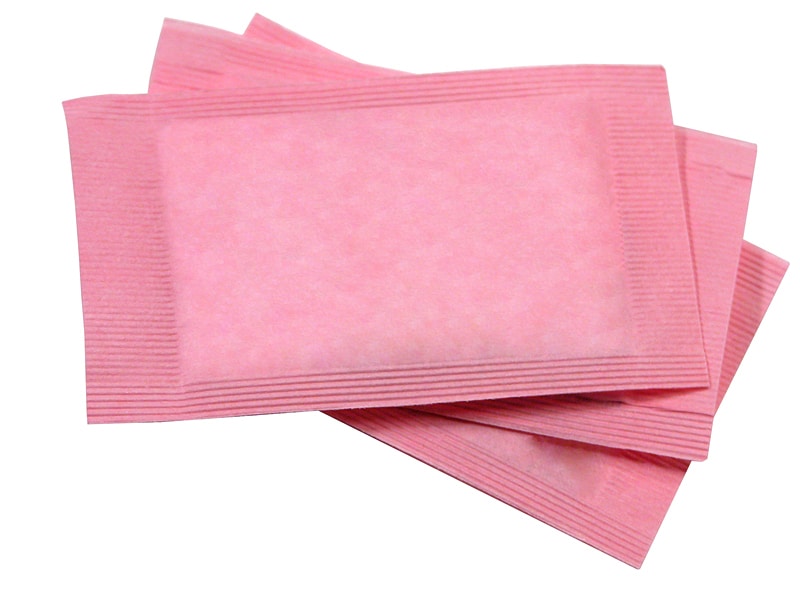Many older adults use low-calorie artificial sweeteners in their food and drink. Some of them use the sweeteners as a way of controlling their blood sugar and others to reduce the calories they consume. In fact, a 2017 study showed that people typically eat or drink at least one thing with artificial sweetener each day.

Over the years, there has been a great deal of controversy over whether or not artificial sweeteners are safe. Although the FDA has approved 8 artificial sweeteners, the controversy continues today.
What Does Research Say?
The FDA has given its approval to 8 sugar substitutes that can be used as additives in foods. They are:
- Saccharin.
- Aspartame.
- Sucralose.
- Acesulfame potassium.
- Neotame.
- Advantame.
- Stevia.
- Monk fruit.
Even with the FDA’s approval, there is some scientific evidence that suggests consuming low-calorie sweeteners could lead to health problems. One study indicated that drinking just one extra half-serving of a beverage containing an artificial sweetener raised the risk of developing diabetes by 16 percent. Other studies have also found an association between artificial sugars and an increased risk of heart disease and stroke.
There is also research that shows artificial sweeteners have some health benefits. Studies have linked the use of artificial sweeteners to success in weight loss. In one study, overweight adults swapped out high-calorie beverages for ones that had zero calories because they contained artificial sweeteners. The study showed that just by doing that, the participants were able to lose as much as 2.5 percent of their weight. Low-calorie sweeteners have also been linked to better blood sugar control, making them a good alternative for diabetics.
What’s the Bottom Line?
The bottom line is that using artificial sweeteners is really a personal choice and one that your older family member should discuss with their doctor or a dietician. The health care professional can help them to make a decision on whether or not to use artificial sweeteners based on their medical conditions and how they plan to use the sweetener. Whatever the decision, family caregivers can be reassured by the fact that the FDA has conducted a great deal of research and made the decision that the sweeteners are “generally considered safe.”
Whether your older family member chooses to use low-calorie sweeteners or not, home care can help them to consume a healthier diet. A home care provider can prepare meals that contain healthy ingredients and limit unhealthy substances like salt, added sugar, and certain fats. Home care providers can also drive seniors to the grocery store to purchase foods and help them to make healthy choices.
If you or an aging loved one are considering hiring Elder Care in Scotch Plains, NJ, call the caring staff at Helping Hands Home Care today at 908-418-4299. Providing Home Care Services in all of Northern and Central NJ, including Clark, Westfield, Cranford, Scotch Plains, Rahway, Linden, Summit, Edison, Elizabeth, Mountainside and the surrounding areas.
Sources
Webmd.com
Mayoclinic.org
After graduating from Seton Hall University with a BS in finance Helping Hands Homecare’s Owner / President, Robert D’Arienzo, went to work on Wall St. for six years. However, after Robert’s grandmother became ill with stomach cancer Robert and his family needed to find assistance in the home for her. After many trials and tribulations Robert could see that there was a great need for quality home care services here in NJ and loved the idea of being able to assist other families who were going through what his family went through with his beloved grandmother.
Thus, Robert had found his passion. After almost a year of preparation Robert opened Helping Hands Homecare in 2003. Robert wanted Helping Hands Homecare to focus on providing the highest quality of caregivers, exceptional customer service, and providing a service that familys could depend on in their time of need. Since then Helping Hands has assisted hundreds of individuals with the simplest of needs to more complex cases while preserving those standards set out many years ago.
Robert is a Google Verified Author
- How Companion Care Can Help Your Parent Avoid Depression - April 22, 2025
- How Alzheimer’s Care Helps Family Caregivers - April 7, 2025
- How In-Home Care Can Help Seniors Recover from Surgery or Illness - March 24, 2025




